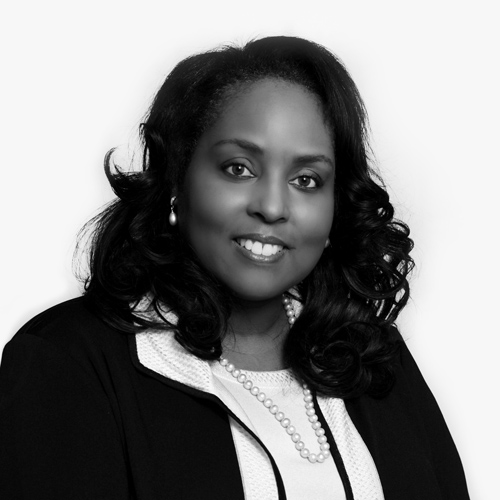A manila envelope hit John Milek’s desk. Upon opening it, he found several unpaid customer invoices. It was his first week as Fastenal’s general counsel, and a sales manager wanted him to send out demand letters. As he learned his way around the office and walked the floor to make personal introductions, Milek realized something: as the parts distributor’s first in-house attorney, he’d have to educate leaders about legal affairs, customize his services to match the company’s needs, and find ways to add real value.
Milek, a Wisconsin native and graduate of Hamline University’s School of Law (now Mitchell Hamline School of Law), started his career as Federated Insurance Company’s in-house corporate counsel. In 1998, he transitioned to Fastenal, enticed by the chance to define the top legal role, build his own department, and help steer an innovative and growing industrial parts company.
Bob Kierlin, the company’s founder, opened the first Fastenal store—a 1,000-square-foot shop—in 1967. By the mid-1970s, Fastenal had several locations in Minnesota and was on its way to developing a long-standing reputation for innovation, customer service, and continual growth. This paved the way for a 1987 IPO, after which business boomed. Between 1989 and 1994, sales jumped from about $41 million to roughly $161 million. Fastenal opened its first international store in the early 1990s, and by the time Milek arrived, the company had more than 700 locations.
THE NEW SUPPLY CLOSET
Fastenal’s founder, Bob Kierlin, first proposed the idea for industrial vending machines in the late 1960s. Today, the innovative idea is present in thousands of locations and is still growing. Fastenal vending machines feature:
- Flexible configurations designed to vend numerous product types
- Machines that restrict access by employee, hour, shift, day, etc.
- Increased productivity by making products and supplies available around the clock
- Local Fastenal salespeople who monitor and refill machines as needed
BUILDING ON A STRONG FOUNDATION
Over its first thirty years, Fastenal engaged a securities counsel for filings and corporate governance, while outsourcing any other legal issues. With no previous in-house attorney, the company had no internal processes, procedures, or precedents to guide Milek. “There wasn’t a job description or a defined role,” he recalls. “It was both a challenge and an opportunity to build everything Fastenal would need for legal from the ground up.”
Fastenal hired Milek to assume all legal work from local counsel, and the fast-moving company needed him to evaluate its needs quickly. He interviewed all executives and managers before formulating a plan to develop the structures and programs that would guide his new department. In meeting with his peers and counterparts, Milek was able to understand Fastenal’s strategic direction and absorb the company’s culture. He learned what items leaders expected him to prioritize, what issues flowed to other business units first, and how to provide the best customized support.
Within five years, Milek had developed a sound rapport with managers and had installed various legal processes. But as he soon discovered, with 1,000 stores—including locations in Monterrey, Mexico, and Singapore—and nearly 7,000 employees, the sheer volume of work coming to the legal department was overwhelming. He managed contract reviews, employment claims, product related issues, IP, and all other legal matters. He quickly realized that he needed additional support. With help from paralegals and assistants, Milek was able to form a small but mighty legal team that would guide Fastenal until 2015, when Milek hired another attorney to focus on affirmative action and compliance matters.
Milek, who has been with Fastenal for nearly two decades, is careful to stay on top of all business developments. He says that for a company such as Fastenal—which has close to 4.6 million SKUs, or active standard parts—communication is crucial.
“As lawyers, we know that we have to know current goals and objectives so we can identify issues in the marketplace and what our colleagues need to be aware of,” he says.
To stay on track, Milek, as well as Fastenal’s two other attorneys, attend regular meetings with various departments. The results, he says, are twofold: by collaborating with these departments, the legal team not only remains up-to-date on company functions, but also sustains a two-way dialogue. Legal strives to remain active, visible, and responsive so that company leaders are aware of available legal advice and services as they encounter data security issues and other emerging areas of risk. Additionally, Milek and his team train employees on standards, best practices, ethics issues, and other policies.
THE MAN BEHIND THE MACHINES
In recent years, Milek’s legal department has been instrumental in supporting the introduction of a growing vending machine initiative that places vending machines at customers’ locations. The large machines, which vend tools and construction supplies, are wired to a digital network and automatically place new orders when supplies run low.
Fastenal currently has about 15,000 customers using roughly 63,000 machines—or 78,000 with the inclusion of locker units. The complex project required attention from legal at every step. The department participated in the negotiation of contracts to purchase equipment and supplies, drafted all licensing agreements for technological components, and developed contracts to be used with equipment distribution. Those contracts, Milek says, changed five times in the first year.
“It’s such a large program that it became critical for us to create a solid document we could customize when necessary, so it went through several iterations as we learned of customers’ varying requirements,” he explains. By developing one strong document, Milek and his colleagues in legal enable their company to safely and efficiently roll out a large number of machines without leaving themselves vulnerable to risk.
The mature company with a history of innovation is showing no signs of decline. Today, Milek’s business counterparts are developing a program that would place a mini store (and a Fastenal employee) at a customer’s location. “We’re still a growth organization that’s always trying new things, and my main role is still to support that advancement while providing value,” Milek says.
Milek has built an efficient team capable of supporting a business with a market cap of $13.2 billion and facilities in more than twenty countries. With nearly twenty years at Fastenal under his belt, he keeps that first week in mind when advising those interested in entering the industry. “Get to know people well and find out exactly what the company needs from you,” he says. “And then exceed their expectations.”

